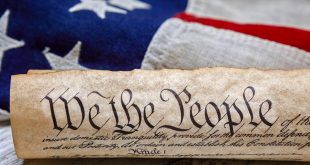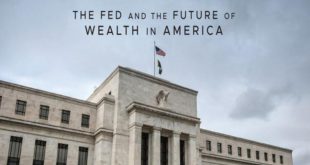The Constitution had been ratified and was going into effect, and the next great question before the country was the spate of amendments which the Federalists had reluctantly agreed to recommend at the state conventions. Would they, as Madison and the other Federalists wanted, be quietly forgotten? The Antifederalists, particularly in Virginia and New York, would not permit that to happen and the second convention movement, led by Patrick Henry and George Mason in...
Read More »US Military Propaganda in Film, Sports, and TV: It’s Everywhere
From the darkened cinema to the football field to the airport screening line, the US government inflated the actual threat of terrorism and the necessity of an aggressive military response. Original Article: “US Military Propaganda in Film, Sports, and TV: It’s Everywhere” I was a young lad of thirteen when the first Transformers film directed by Michael Bay premiered in theaters. I do not recall much about it other than Megan Fox working on Shia Labeouf’s car,...
Read More »US Military Propaganda in Film, Sports, and TV: It’s Everywhere
From the darkened cinema to the football field to the airport screening line, the US government inflated the actual threat of terrorism and the necessity of an aggressive military response. Original Article: “US Military Propaganda in Film, Sports, and TV: It’s Everywhere” I was a young lad of thirteen when the first Transformers film directed by Michael Bay premiered in theaters. I do not recall much about it other than Megan Fox working on Shia Labeouf’s car,...
Read More »Can Economic Data Explain the Timing and Causes of Recessions?
Most economists are of the view that through the inspection of economic data it is possible to identify early warning signs regarding boom bust cycles. What is the rationale behind this way of thinking? During the 1930s the National Bureau of Economic Research (NBER) introduced the economic indicators approach to ascertain business cycles. A research team led by W.C. Mitchell and Arthur F. Burns studied about 487 economic data points in order to establish what...
Read More »Can Economic Data Explain the Timing and Causes of Recessions?
Most economists are of the view that through the inspection of economic data it is possible to identify early warning signs regarding boom bust cycles. What is the rationale behind this way of thinking? During the 1930s the National Bureau of Economic Research (NBER) introduced the economic indicators approach to ascertain business cycles. A research team led by W.C. Mitchell and Arthur F. Burns studied about 487 economic data points in order to establish what...
Read More »What They Really Mean When They Say “Do the Right Thing”
[unable to retrieve full-text content]As a senior in high school, I ran for class president with “Do the right thing” as my campaign slogan. Though I realized years ago how utterly pretentious that message is, I’m often reminded that it’s good politics, which proves the point that politics is poison.
Read More »What They Really Mean When They Say “Do the Right Thing”
Sorry, I've looked everywhere but I can't find the page you're looking for. If you follow the link from another website, I may have removed or renamed the page some time ago. You may want to try searching for the page: Search Searching for the terms %3Futm+source%3Drss%26utm+medium%3Drss%26utm+campaign%3Dcarlisle+they+really+when+they+right ...
Read More »The Fed Is Bailing Out the Wealthy as Everyone Else Pays the Price
The Federal reserve says that inequality is a problem. At the same, the Fed also pretends to have nothing to do with it. Last September, for instance, Jerome Powell bemoaned the “relative stagnation of income” for people with lower incomes in the United States, but then claimed the Fed “doesn’t have the tools” to address this issue. Instead, Powell, being the chairman of this ostensibly “independent” and “nonpolitical” central bank, called for the federal government...
Read More »The Fed Is Bailing Out the Wealthy as Everyone Else Pays the Price
The Federal reserve says that inequality is a problem. At the same, the Fed also pretends to have nothing to do with it. Last September, for instance, Jerome Powell bemoaned the “relative stagnation of income” for people with lower incomes in the United States, but then claimed the Fed “doesn’t have the tools” to address this issue. Instead, Powell, being the chairman of this ostensibly “independent” and “nonpolitical” central bank, called for the federal government...
Read More »War Has Declined in the West Because War Isn’t “Worth It” for Rich Countries
Sorry, I've looked everywhere but I can't find the page you're looking for. If you follow the link from another website, I may have removed or renamed the page some time ago. You may want to try searching for the page: Search Searching for the terms %3Futm+source%3Drss%26utm+medium%3Drss%26utm+campaign%3Dmatthews+war+declined+west+because+war+isnt+worth+rich+countries ......
Read More » Swiss Economicblogs.org
Swiss Economicblogs.org




